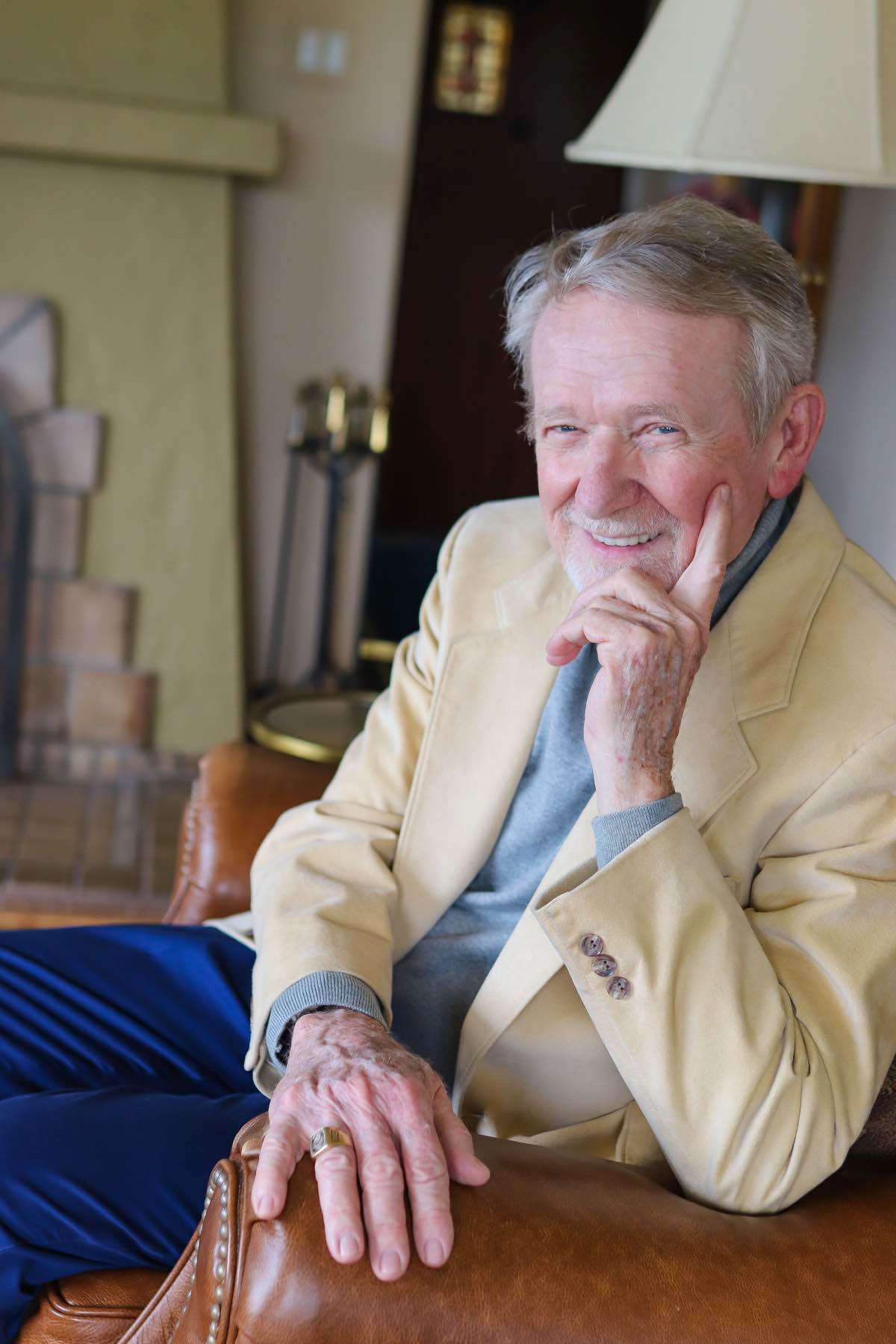
Donald Gabard MS ’78, MPA ’88, PhD ’90
(he/him/his)
Founder and Former President, USC Lambda LGBTQ+ Alumni Association
Donald Gabard is the founder and former president of the USC Lambda LGBTQ+ Alumni Association. A triple USC alumnus and longtime champion of LGBTQ+ causes, he worked with university leaders and founding USC Lambda board members to create what has become the home of our LGBTQ+ Trojan Family. In addition, he served as co-president of USC Lambda during its first two years—a time of exponential growth for the organization, both in terms of membership and programming.
During his tenure as co-president, USC Lambda hosted its first Homecoming reception, as well as its inaugural Scholarship Awards dinner. Gabard’s exemplary leadership and tireless efforts laid a solid foundation for the USC Lambda of today: a dynamic alumni organization that fosters community, awards scholarships to deserving LGBTQ+ and allied USC students, and promotes education and increased visibility for LGBTQ+ Trojans.
A North Carolina native, Gabard graduated from USC with a master’s degree in physical therapy in 1978; he later returned to earn his master’s and doctorate in public policy. His specialty area in physical therapy was pediatrics, and he was among the first in L.A. to treat pediatric AIDS patients. Gabard also treated adults with AIDS who were refused service by other providers.
In 1987, Gabard participated in the founding of Caring For Babies With AIDS, as both a program designer and one of the organization’s first providers, pro bono. Based in Culver City, California, this nonprofit was the first pediatric AIDS hospice in the western United States. He later authored the concept paper for AIDS In-Home Care Training Programs, which was funded and implemented by the City of Los Angeles in 1988. That same year, he won the Samuel C. May National Research Award from the Western Government Research Association for his work in AIDS research. In 1994, Gabard was both a panelist and featured speaker at the American Association for the Advancement of Science on the intersection of ethics in sexual orientation and human genome investigations. Over a 20-year span, he served as a medical ethicist on three hospital ethics committees simultaneously, often safeguarding the rights of the LGBTQ+ community.
In 2011, Gabard founded By Your Side, a volunteer-based program providing end-of-life support for patients at LAC+USC Medical Center. The program, through funding from the Archstone Foundation, was widely disseminated to hospitals.
A 1996 recipient of a USC Alumni Association President’s Award, Gabard continues to play a vital role in USC Lambda, most notably in scholarship fundraising. Now retired from being a tenured professor, he enjoys traveling—passionately chasing Christmas markets in Western Europe, Canada and the U.K.—as well as gardening, specifically cattleya orchids.
2023 Legacy Address
Delivered April 15, 2023, at the 30th Anniversary Scholarship Gala
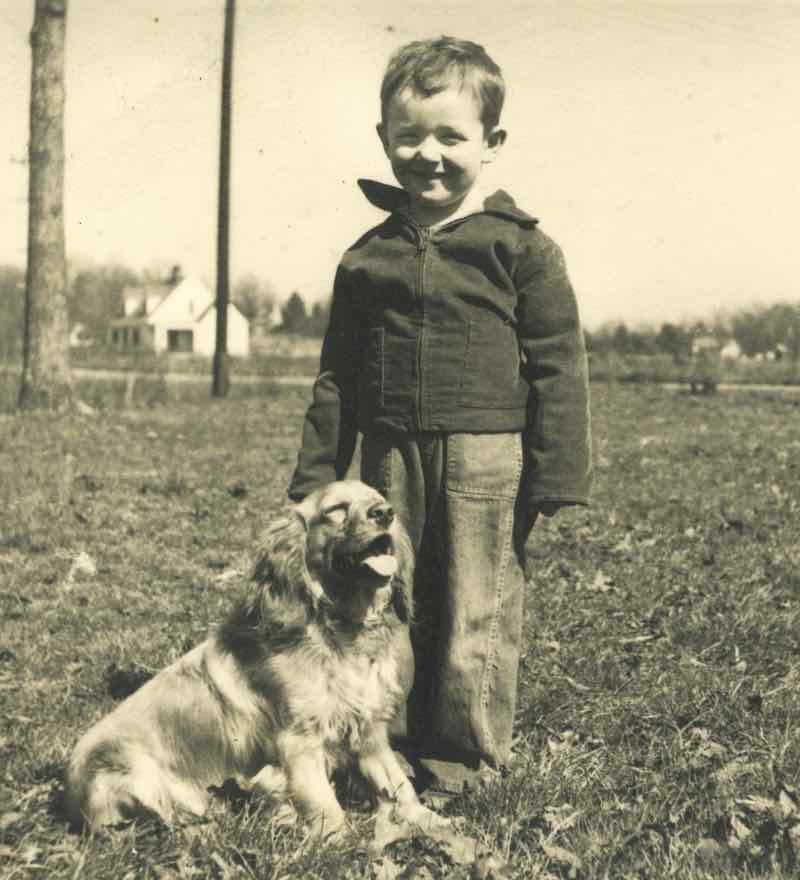
Thank you for this award, it means the world to me, I never expected it, but I am truly appreciative. I want to thank the Lambda Board and its president, Erika Hartman, and our executive director, Brandon Kyle. Thank you, President Folt, the USC executives, and all of you for being here to help us celebrate our 30th year.
I would like to share a perspective and some ideas that I hope are relevant.
While I am truly appreciative for this recognition, I want to acknowledge that it takes a lot of people, working together, to affect the lasting change that Lambda exemplifies.
But the people who build the mountains are not always the ones recognized and they should be.
There is nothing new about that observation, but it is amplified for our community because staying safe far too often means staying under the radar. It’s a survival strategy but it’s also a way to remain effective in the face of opposition.
About two years ago my cousin, who is now in his late 80s, told me that he understood why l left the rural South. He said, “If you had stayed, we would never have allowed you to amount to anything.” Every minority and woman in this room knows how that works:
You are ignored, discredited and opportunities are given to people who are less qualified.
And when you do succeed someone else takes the credit. That has happened to most of us, including me.
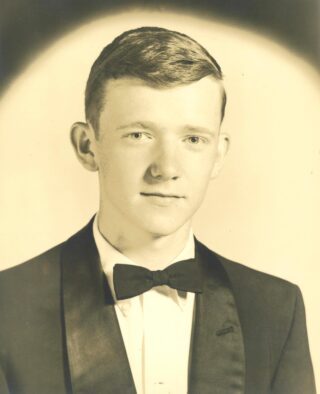
But the difference between us and other groups is that we are a much smaller community and one that is harder to identify, even among ourselves, which often makes this an isolated journey. This has changed for many but is still true for many more.
In looking back at the start of Lambda, I would like to acknowledge five people who have not received the recognition that they richly deserve. But first: context.
There were a lot of reasons to delay the establishment of Lambda. Other universities were experiencing backlash over similar efforts. Stanford University comes to mind. We were perceived at that point in time as the perpetrators of a pandemic, AIDS, that could destroy the country/world, and publicly, we were condemned as moral degenerates by religious and political leaders at a level exponential to what you are seeing today. During this time frame, I was engaged with Caring For Babies With AIDS, the first pediatric AIDS hospice in the western United States. We had to have security guards for the children and providers. That was the environment at the time.
Despite that social and political context, then V.P. James Dennis, Dr. Cynthia Cherry and Dr. Kristine Dillon in student affairs worked closely with me in moving Lambda from concept to reality. They coached me, encouraged me and they had the personal courage to support this cause. They were there before anyone else.
Marney Hull was my co-president for the first two years Our shared knowledge of organizational structure, theory and behavior made everything so much easier. This was a very intentional, deliberate, and cerebral effort. She helped me establish the initial board and it was her suggestion to bring Amy Ross on board, who later took over her position when she stepped down at the end of the second year. Let us be clear, board membership was by invitation and those invitations went to people who had the talent we needed. We ran it like a business. I am very much indebted to her for her help those first two years.
Dr. Stan Harris was the university psychiatrist in Student Health and Counseling Services. I asked him to join the board because he was keenly aware of student needs. But there is a backstory to that. Vice President Dennis had appointed him chair of the new Student Affairs Advisory Group. Stan then appointed me as the alumni liaison to this advisory group, and that was the springboard that pushed me to start the process, that resulted in Lambda.
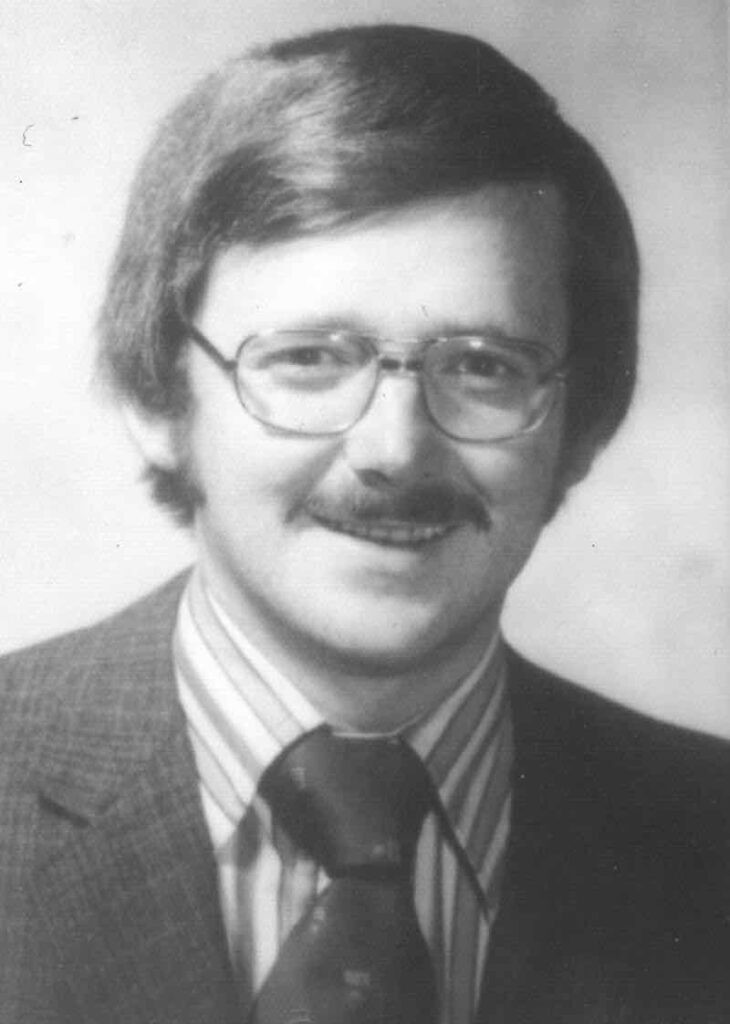
Over the past 30 years we have certainly had our ups and downs. I have no idea what the future of our national community looks like in the short term but over the long term I am radically optimistic. As an organization, however, I believe that we must make changes to thrive.
I would like to share some ideas knowing that their greatest impact may simply be to trigger better ideas from many of you. If so, then please replace mine. But it may help to have a little insight into where I am coming from because I have a very diverse background. I started out in Finance and Systems with Standard Oil of NJ and became the plant controller for Essex International. I cofounded a company that did large scale special events, think part of the Olympics and Ford Motor Show. But I also have my PhD in policy and my dissertation was on the recruitment and retention of volunteers in AIDS service organizations. Overall, I think I have been consistent in focusing on the endgame.
For starters, we need a bolder vision, we need to expand our umbrella and not just fund members of our community and allies. I believe that we need to fund research that gives us fresh insights into our community. Outside of a barrage of research about who we have sex with and how frequently, there is a shocking absence of research on who we are, who we were and where we are going. The problem has always been funding. There was always just too much pushback. This is a major research institution, and we need to capitalize on it. To that end I am going to do what I can. We signed the papers this month establishing an endowed scholarship managed by Lambda to reward students who chose to do their master’s thesis and dissertations about our community. That scholarship is fully funded at $100,000, and I am adding $200,000 to take it to a total of $300,000. I would hope that we could publish these papers in our own Lambda library for anyone to access throughout the world. But this is not enough. There are lots of people in the room who could add a zero and make USC and Lambda the epicenter of scholarly research about our community. How truly Great that would be!
We need a way to capitalize on our divided loyalties, which we all have. We need some mechanism to have Lambda scholarships funded for specific disciplines, schools or colleges and managed by Lambda. Lambda Marshall graduates should have a mechanism to fund Marshall students or any other school or discipline. But that means increasing our membership. This brings us to our single greatest challenge.
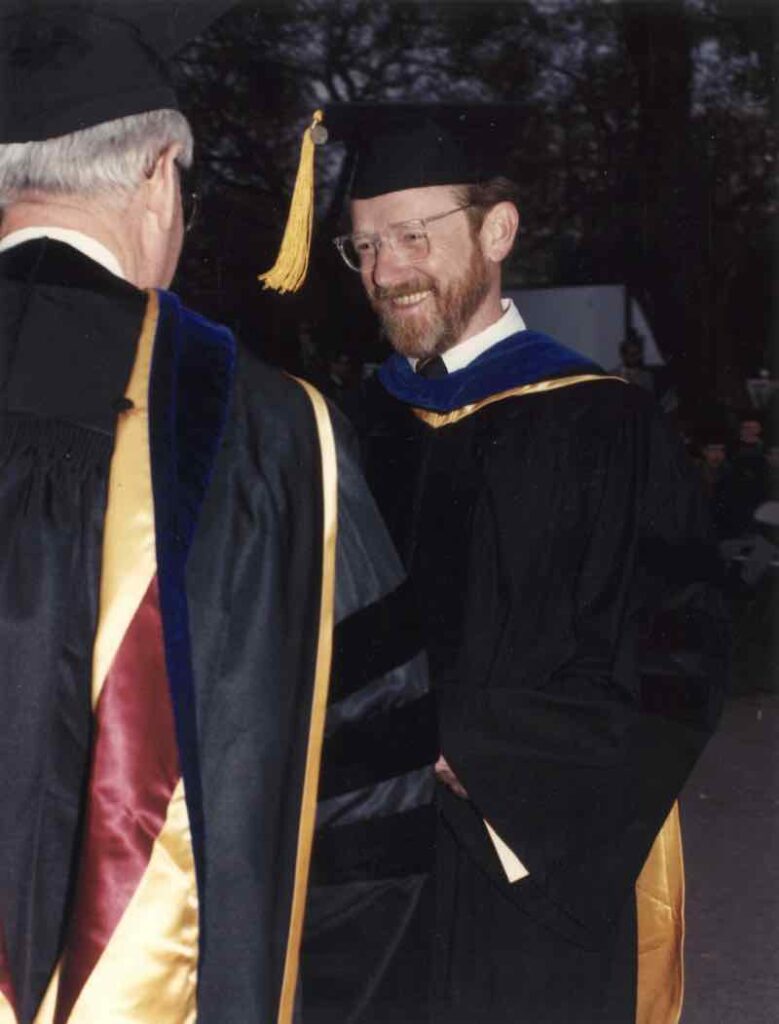
It is critical that our initial alumni engagement begins with the student experience. The Daily Trojan article last year “USC Isn’t as LGBTQ+ friendly as It Wants to Seem” pointed out areas that objectively the university needs to address, and we can also be a part of the remedy. We must engage with our current students from their first semester in a much more intense way and let them know who we are and what we do. In turn we need to listen to ways they feel we can help. At a minimum this outreach could and should include mentoring and social engagement like all the other associations, but given student perceptions about campus support, we need to be prepared for a much more extensive and creative engagement that neither replicates nor displaces existing resources. Our goal is to be a lifetime partner.
I am not naïve about the challenges of our current social and political environment. Universities, as the base for social groupings and networking, are being replaced rapidly with other social venues and professional networks, especially in our community. But all of us remember our student life and all of us can unite around the notion of making it better for the next generation. This should be our consistent and primary goal with all else we do in support of it.
I could not and would not have made it through three degrees here without the financial support that USC gave me. Through a masters and doctorate, I worked full time at CHLA and took vacation time in hours to attend classes. I could not physically or emotionally do any more and USC was there for me, and I will never forget that.
Sometimes this university makes me very angry, and justifiably. But I always come back for two reasons (1) this is still my intellectual home. And (2) I am still enormously grateful for the help this university gave me. It radically changed my life. The education I received enabled me to be a much more effective citizen and activist and perhaps most importantly it changed the way I thought about myself. Our mission is not outdated nor irrelevant. I would argue that in the current political and social backlash, the most important thing for us to do socially and politically is to ensure an educated community. That is the most effective and enduring way to amass power and affect change.
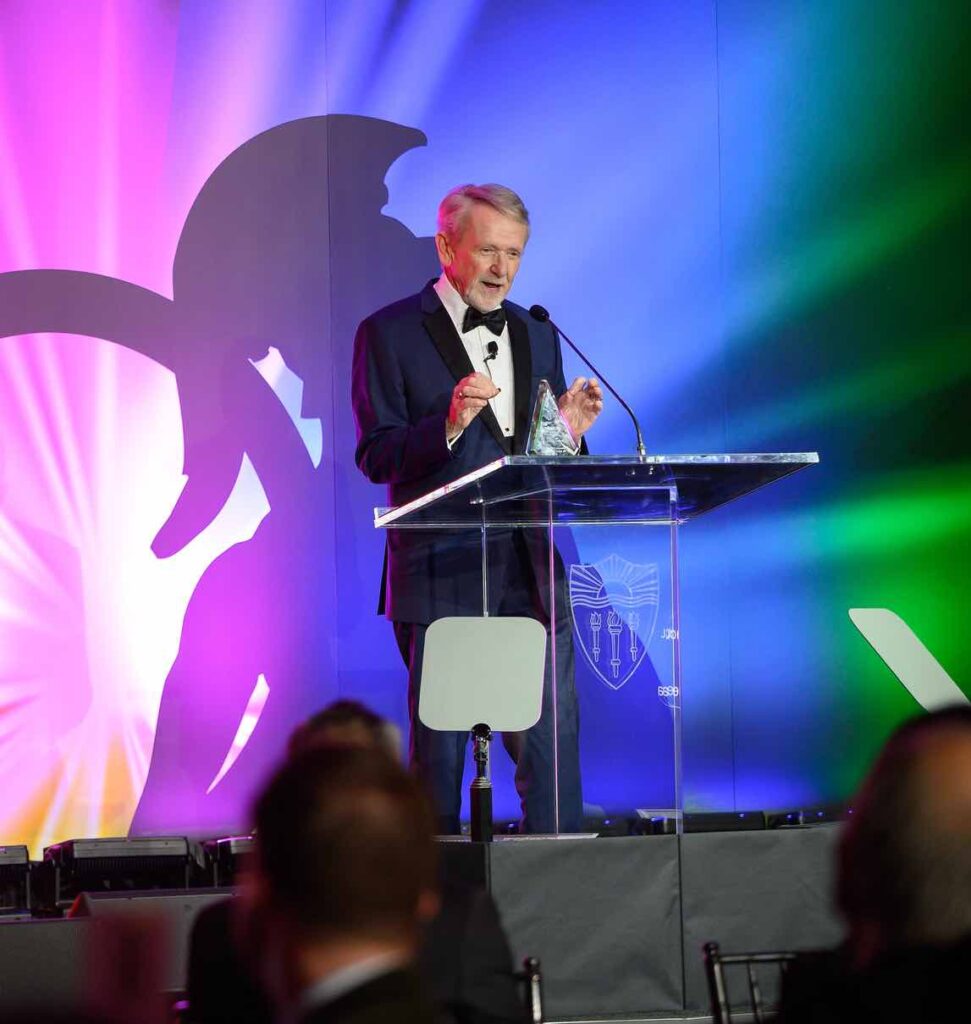
At 30 years, we are at a turning point. We are extremely fortunate to have a competent, skillful and committed Trojan in our executive director. Brandon has vision and skill to navigate the system. This system takes courage as well as skill. Just as I needed and received commitment and support, he needs the same and he needs the sort of administrative support we got from James Dennis, Drs. Cherry and Dillon.
Remember, this is USC, a university to be enormously proud of and this is Lambda, we are Pride. We most certainly can create a much better tomorrow for our community. Fight On!
Scholarship
The Donald L. Gabard Scholarship for Advancing the Understanding of the LGBTQ+ Community is an annual scholarship of support for the research efforts of doctoral and master’s-level students at the University of Southern California who are interested in advancing the understanding of the LGBTQ+ community. The Scholarship shall provide support to students on the basis of merit. This award is open to all disciplines but is restricted to funding for master’s theses or doctoral dissertations under the following guidelines: The subject matter should contribute to our understanding of the LGBTQ+ contribution in a historic, current, or prospective investigation defined as a master’s thesis or a doctoral dissertation. The product need not be restricted to exclusive specific investigations of the LGBTQ+ community but subject matter of the community must be included in the total investigation. There is no expectation that the investigation portrayals be negative or positive in reference to the LGBTQ+ community but rather a portrayal that is integrative in the fabric of the events or theories presented.
Criteria:
- Be a Graduate or Doctoral Student during the academic year
- Open to all schools and disciplines
- The recipient should have a B average overall or higher
- Complete bio and gratitude statement by May if selected
- Attend USC Lambda Scholarship Reception and Lavender Celebration in the Spring